Embarking on a path to a career in the dynamic hospitality scene? A solid hospitality resume is your golden ticket. In this guide, we serve up key ingredients needed to brew an application that stands head and shoulders above the rest.
Featuring invaluable tips, practical examples, and sample resumes, we'll help you carve a resume that not only charts your professional journey but also highlights your inner people-person skills.
So, ready to cook up a storm with your resume? Keep reading to learn the following steps:
- Choose the correct format for a hospitality resume
- Write a compelling resume summary that grabs the attention of hospitality employers
- List skills that are specific to the hospitality industry
- Optimize your work experience section to showcase your hospitality strengths
- Properly include your educational credentials in hospitality
- Find useful job search resources for hospitality professionals
1. Choose the correct format for a hospitality resume
The first step to creating an effective hospitality resume that will win the job of your dreams is to choose the best format for your experience level.
Ideally, you should employ the reverse-chronological format – a resume format that prioritizes work experience above all else. With this resume, the work experience section becomes the crown jewel of the document, forming the largest and most central part of the resume.
However, the RC resume is less than ideal for candidates seeking entry-level positions who do not have an extensive background in hospitality.
In this case, there are two alternative formats to consider
- Functional resume: The functional resume is designed for applicants who are recent graduates and lack relevant work history. Rather than focusing on work experience, this resume focuses on education, skills, and unpaid experience.
- Hybrid resume: The hybrid resume combines elements of both functional and reverse-chronological resumes.
Focus is split relatively evenly between all sections, making it easier for applicants who are changing career paths or working around gaps in their work histories to create a compelling resume.
2. Write a compelling summary that grabs the attention of hospitality employers
Your resume summary resides at the top of the document, serving as an introductory statement to help the employer get to know you right off the bat. In this summary, you should strive to include your most essential responsibilities and skills, as well as any notable accomplishments from previous jobs.
To illustrate how to write a strong resume summary, check out this set of examples
Incorrect hospitality resume summary example
Experienced hospitality worker with a history working in hotels. Helped the hotel to earn a major local award in 2021 thanks to my exceptional service and management skills.
What's wrong with this example? In this example, the applicant comes off a bit cocky, while also failing to provide greater context or specific details to back up their claims. To correct this, the language should be adjusted to be more professional and the applicant should include exact details surrounding the award they helped a hotel earn.
Corrected hospitality resume summary example
Passionate Hospitality Professional with experience in tourism, valet management, and front desk management. Previously worked as a front desk manager at a 4-star hotel, playing a major role in the hotel earning the title of 2021’s Best Local Boutique Hotel in Savannah.
Why is this better? In this corrected example, the applicant still gives off an air of confidence but backs up this confidence with specific skills and context. Additionally, they provide the name of the award they helped their previous employer earn, as well as signifying the hotel’s importance by including “4-Star."
3. List skills that are specific to the hospitality industry
When writing your hospitality resume, it is important to include both soft and hard skills.
Soft skills are your interpersonal, people skills. These abilities are highly important and valued within hospitality, as most of the positions deal with working directly with customers. However, including hard skills can be equally important to employers.
Hard skills are your technical skills and abilities that showcase your competence within a hospitality position. These skills are often learned through education or training.
Best hard skills to include in a hospitality resume
- Basic Computer Skills
- Vendor Relations
- Event Planning
- Hospitality Industry Knowledge (Current trends, regulations, etc.)
- Scheduling and Bookkeeping
- Front Desk Management
- Sales and Upselling
- POS Systems
- Bilingualism
- Social Media Marketing and Networking
Effective soft skills to put on your hospitality resume
- Attention to Detail
- Active Listening
- Conflict-Resolution and Problem-Solving
- Verbal Communication
- Telecommunication
- Multi-Tasking
- Empathy
- Flexibility and Adaptability
- Negotiation
- Teamwork
4. Optimize your work experience section to showcase your hospitality strengths
When it comes to creating a hospitality resume, including a dedicated "Work Experience" section is absolutely crucial. This section serves as a golden opportunity to highlight your hands-on experience in the industry and demonstrate your ability to excel in various hospitality roles.
Whether you've worked as a server, front desk agent, or event coordinator, this section allows you to showcase your practical skills, customer service prowess, and adaptability.
Here is an example of a work experience entry from a hospitality resume
Lead Tourism Guide | Dane County Chamber of Commerce
Madison, WI | January 2017 to November 2020
- Assisted guests in contacting and coordinating reservations at local hotels and vacation rentals.
- Provided in-depth knowledge of local sightseeing and landmarks to guests both in-person and over the phone.
- Operated a POS system and cash register, carrying out financial transactions for guests and vendors with 100% accuracy.
5. Properly include your educational credentials in hospitality
When listing your education on a hospitality resume, you should always list your highest level of education, as well as the school or institutions you graduated from.
Along with properly listing your education, it is also beneficial to list any relevant hospitality certifications you have earned.
We highly recommend seeking out certifications in the hospitality industry, as completing certification programs helps you to gain a much more competitive edge against other applicants.
Here is an example of a well-crafted education section on a hospitality resume
Education
B.A. in Hospitality Management | Duke University
- Major: Hospitality Management and Business Administration
- Graduated: 2017
- GPA: 3.6
Certifications
- Certified Hotel Administrator (CHA) | American Hotel and Lodging Educational Institute
- Certified Hospitality Supervisor | American Hotel and Lodging Educational Institute
6. Essential job search resources for hospitality professionals
Stepping into the bustling world of the hospitality industry, it's vital to have the right resources on hand to secure your next great role. Here's a curated list of top job search tools tailored specifically for those cooking up a career in hospitality:
- Hospitality job boards: Harness the power of hospitality-focused job boards like Hcareers, Hospitality Online, and Caterer.com to uncover a buffet of job opportunities suited to your unique skills and experience.
- Professional networking sites: LinkedIn should be your go-to for establishing connections and seeking job vacancies, but remember to also explore industry-specific networking sites like Hosco.
- Hospitality associations: Membership in associations like the American Hotel & Lodging Association can put you in touch with excellent networking opportunities, career development initiatives, and potential job leads.
- Hospitality trade shows and conferences: These events offer you a chance to network, stay on top of industry trends, and sometimes even find job openings. Events like the International Hotel Investment Forum can be invaluable.
- Online learning platforms: Websites like Coursera, Lynda, and Khan Academy offer many hospitality-related courses that can boost your knowledge and resume.
Armed with these resources, embark on your mission to find the perfect hospitality role that season your career just right.
Hospitality Resume FAQ
What specific skills should I highlight in my hospitality resume?
Empathy, customer service, communication, ability to work in a team, and problem-solving skills are all key in the hospitality industry. Don't forget to highlight specific technical skills such as proficiency in a foreign language or familiarity with hospitality software.
Should I include volunteer experience in my hospitality resume?
Absolutely, especially if it's relevant. For example, volunteering at a local food bank demonstrates customer service and teamwork skills, both of which are valuable in hospitality.
I've only worked in one hospitality role. How can I make my resume stand out?
Focus on the responsibilities you had and the results you achieved. Did you receive positive customer feedback? Improve a process? These accomplishments make you stand out.
How can I show career progression in my hospitality resume?
Highlight promotions, increased responsibilities, or successful projects you have completed. This demonstrates your growth and value as an employee.
I'm switching from another industry. How can I make my past experience relevant to a hospitality role?
Identify transferrable skills from your past roles. Did your previous job require customer service, multitasking, or teamwork? These are relevant in hospitality.

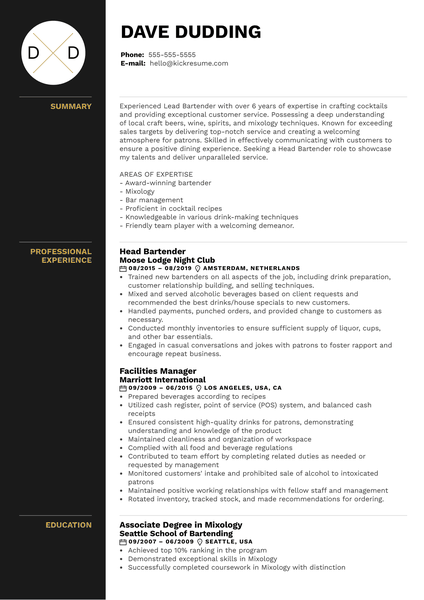
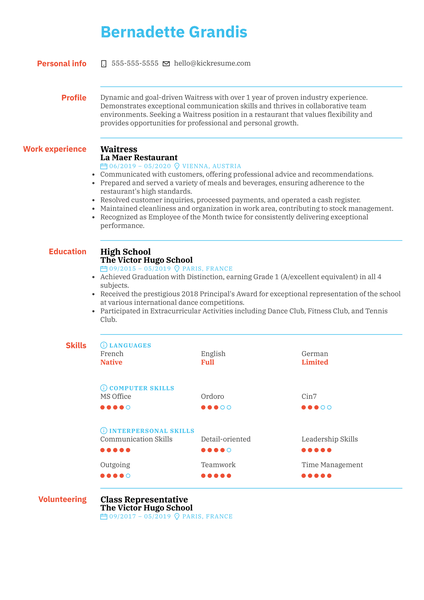
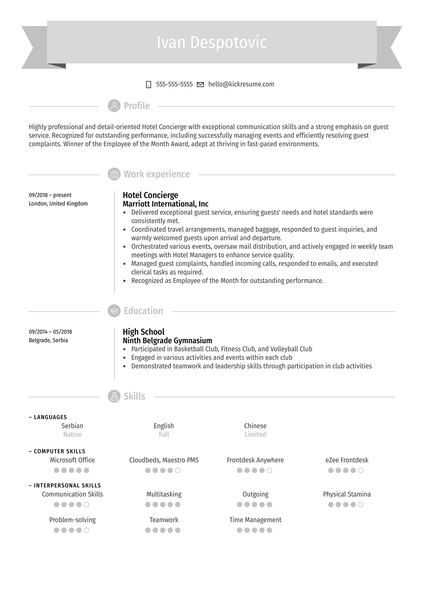
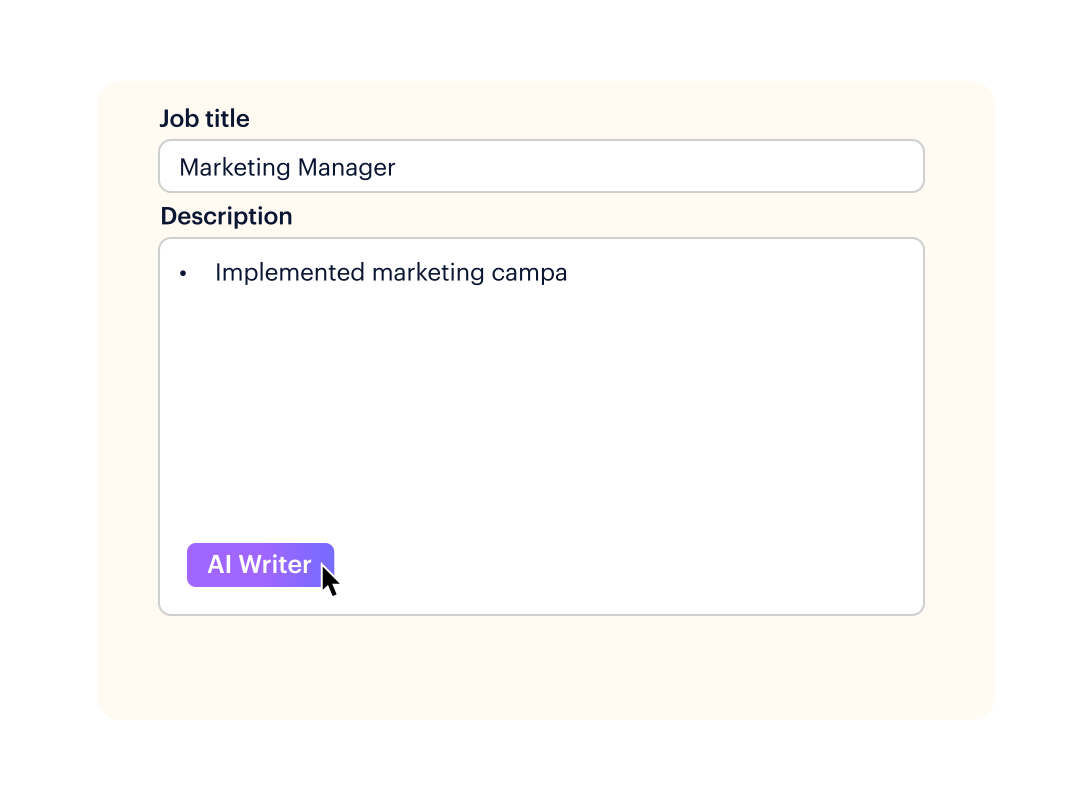

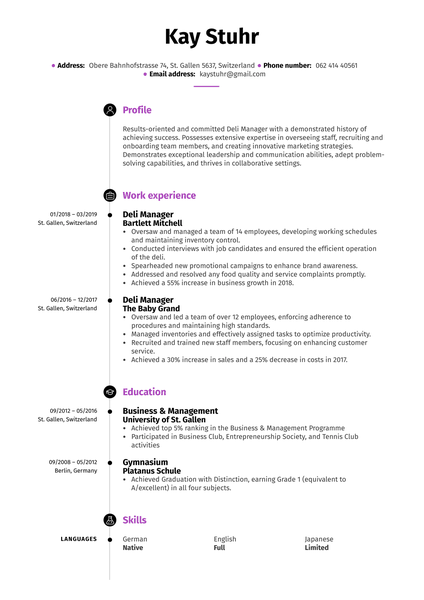
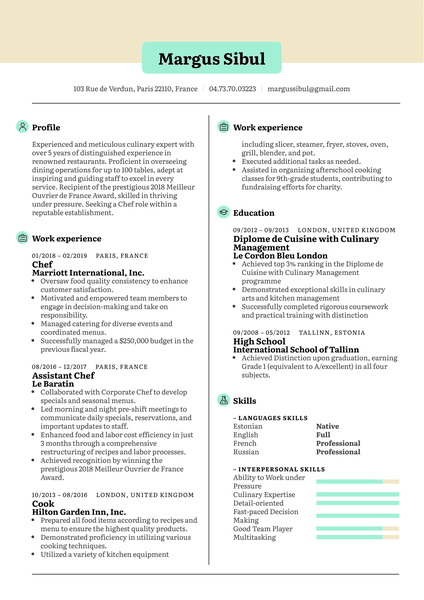
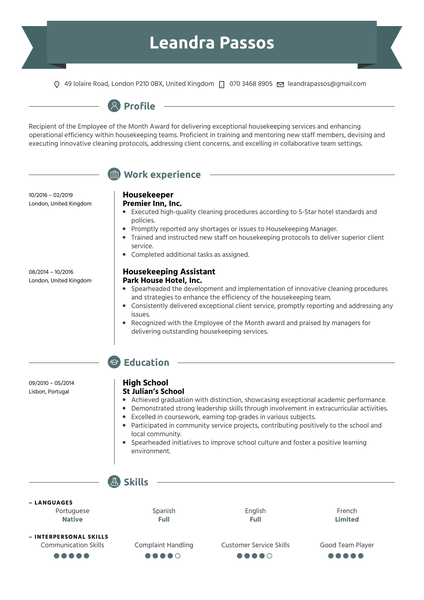
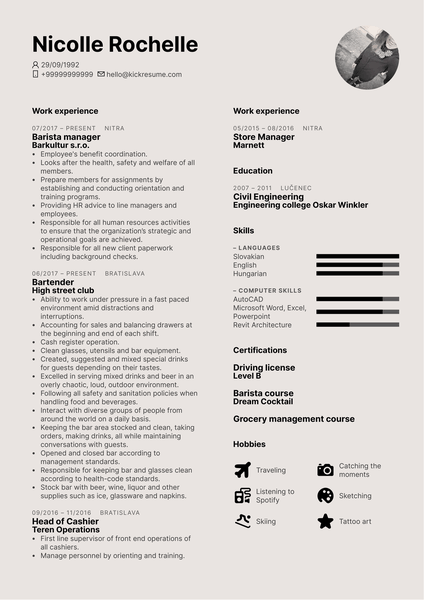
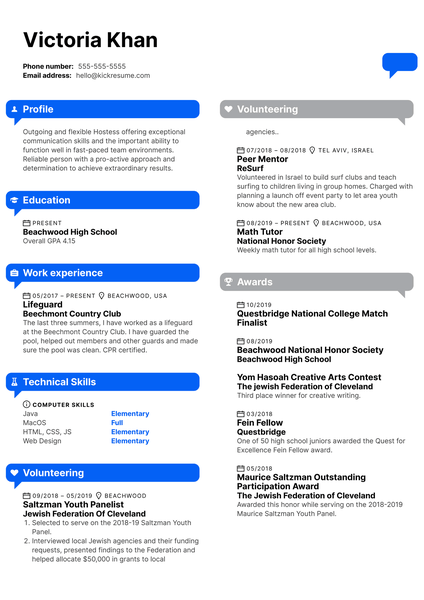

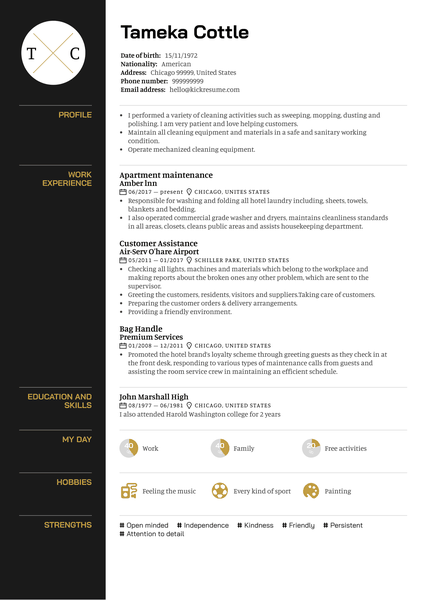



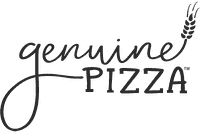
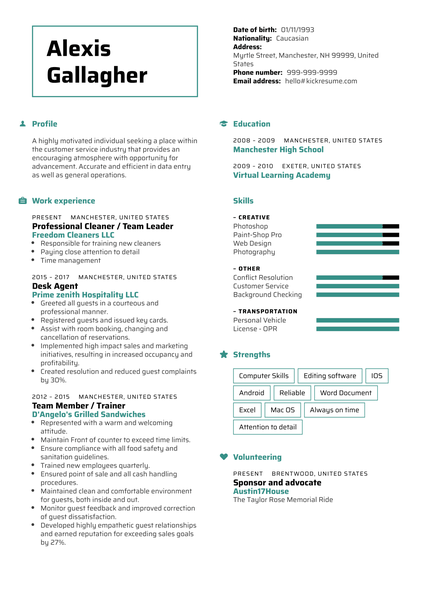

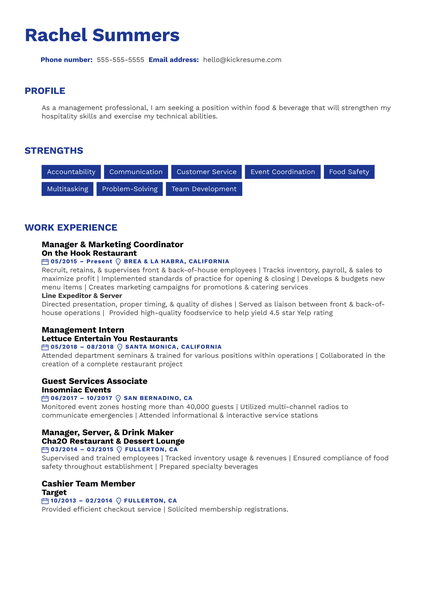
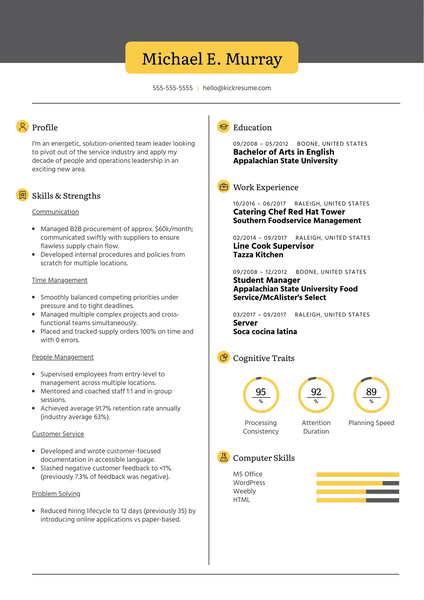

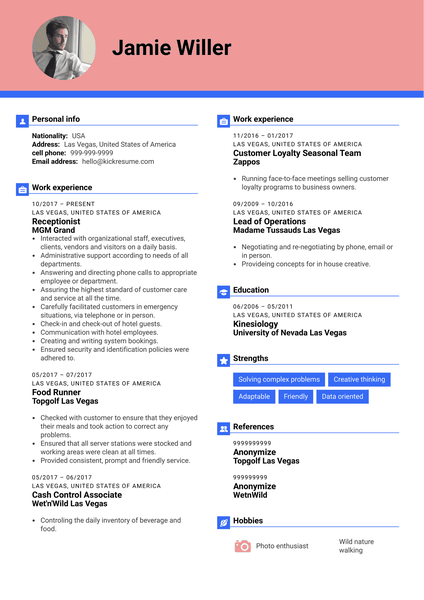
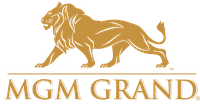
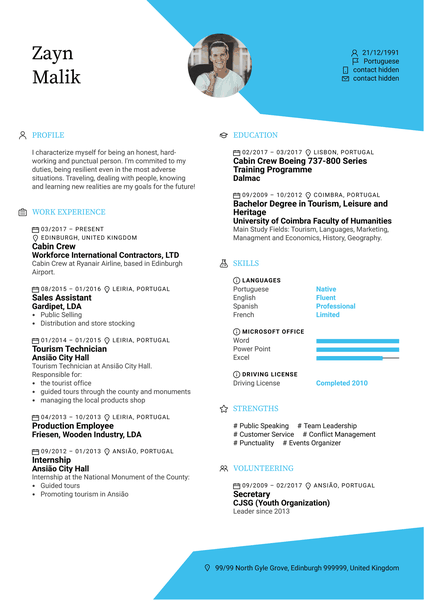
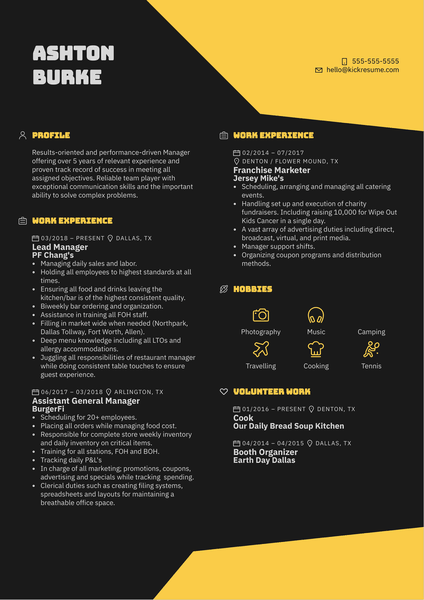
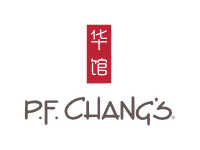
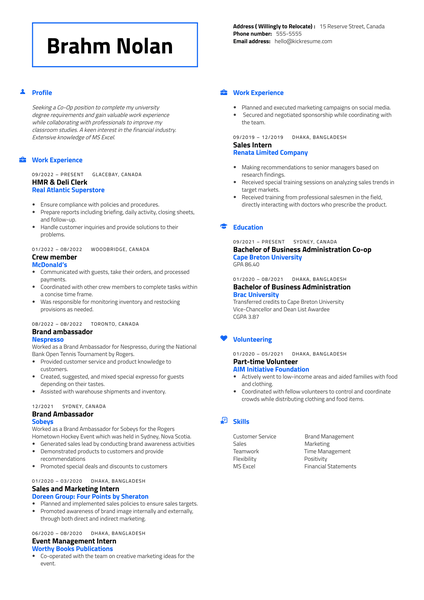

![Modelo Curriculum Vitae Hostess [PT]](png/thumbnail-437.png)

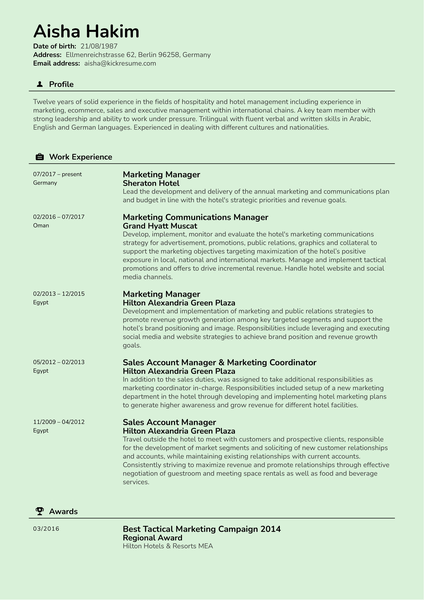
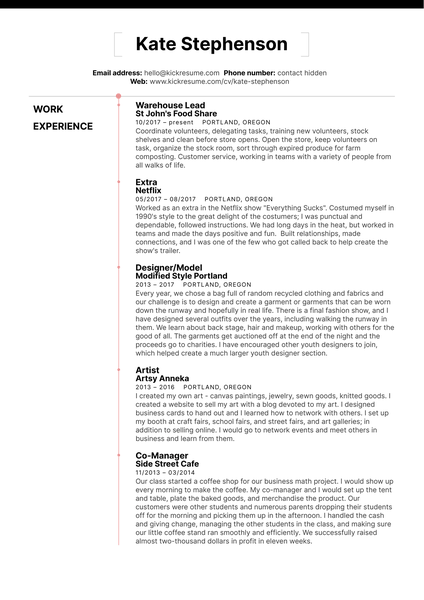

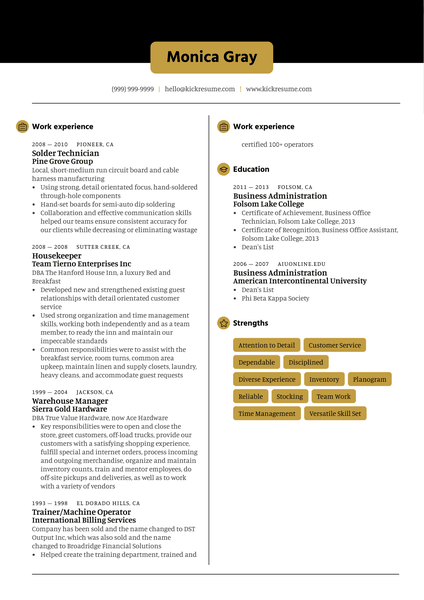

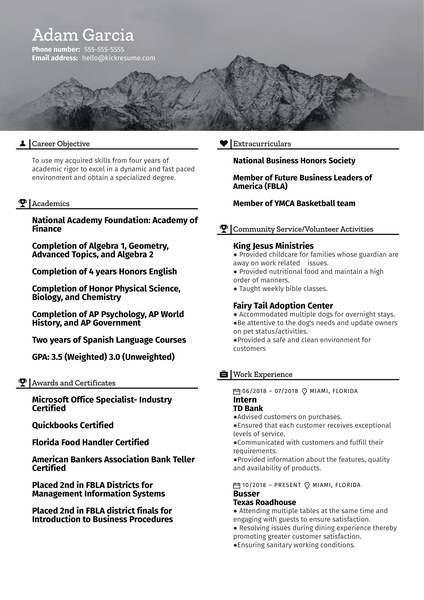
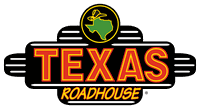
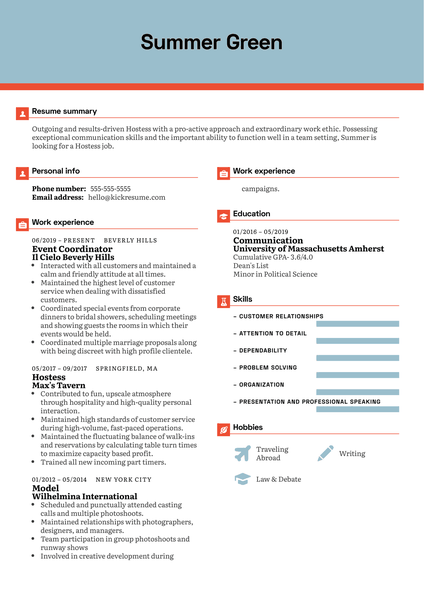



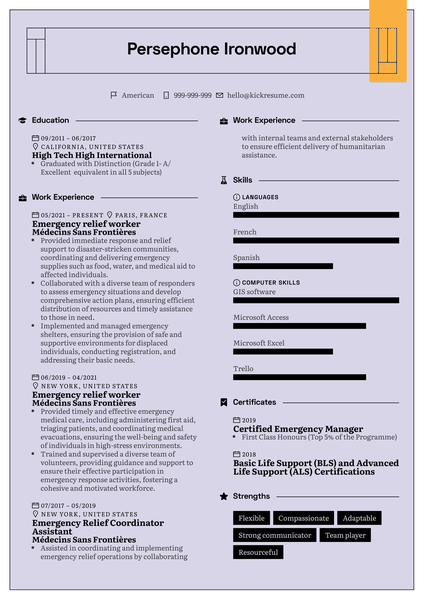


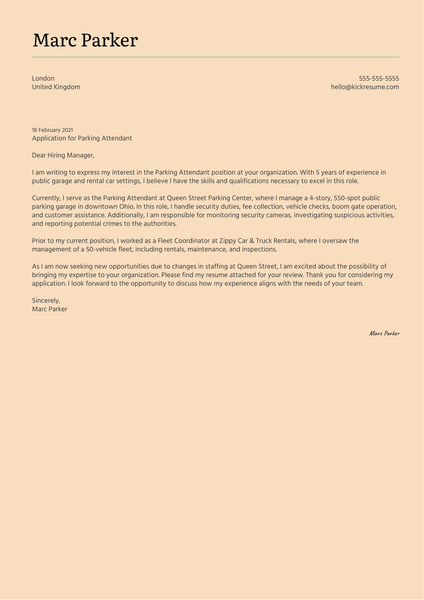
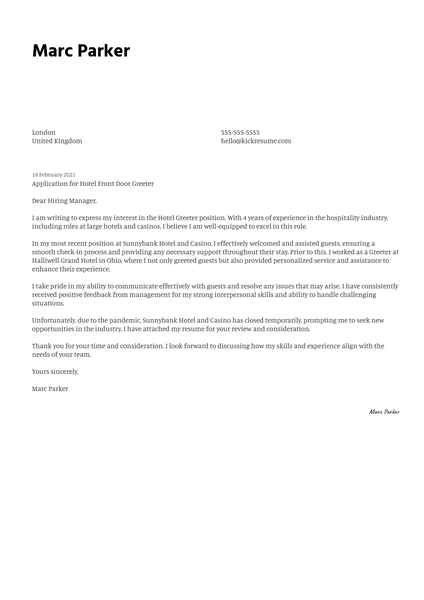
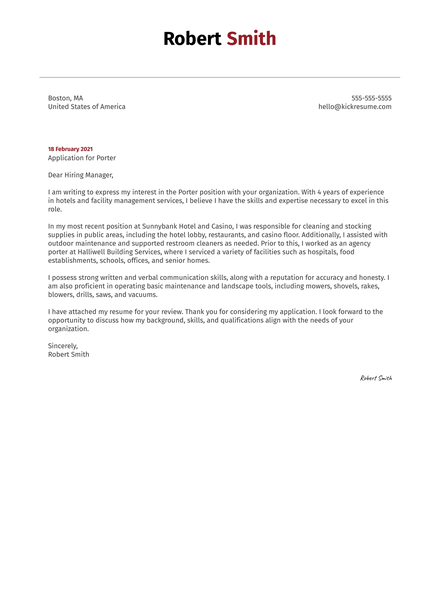
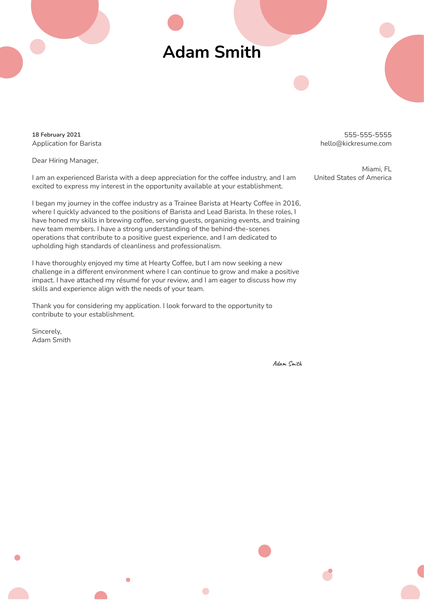
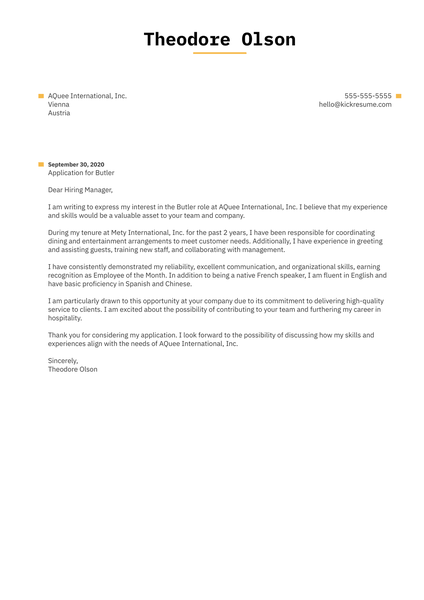

![How to Write a Professional Resume Summary? [+Examples]](https://d2xe0iugdha6pz.cloudfront.net/article-small-images/i-Profile.svg)
![How to Put Your Education on a Resume? [+Examples]](https://d2xe0iugdha6pz.cloudfront.net/article-small-images/i-Collage-Universities.svg)
![How to Describe Your Work Experience on a Resume? [+Examples]](https://d2xe0iugdha6pz.cloudfront.net/article-small-images/Experience.svg)


